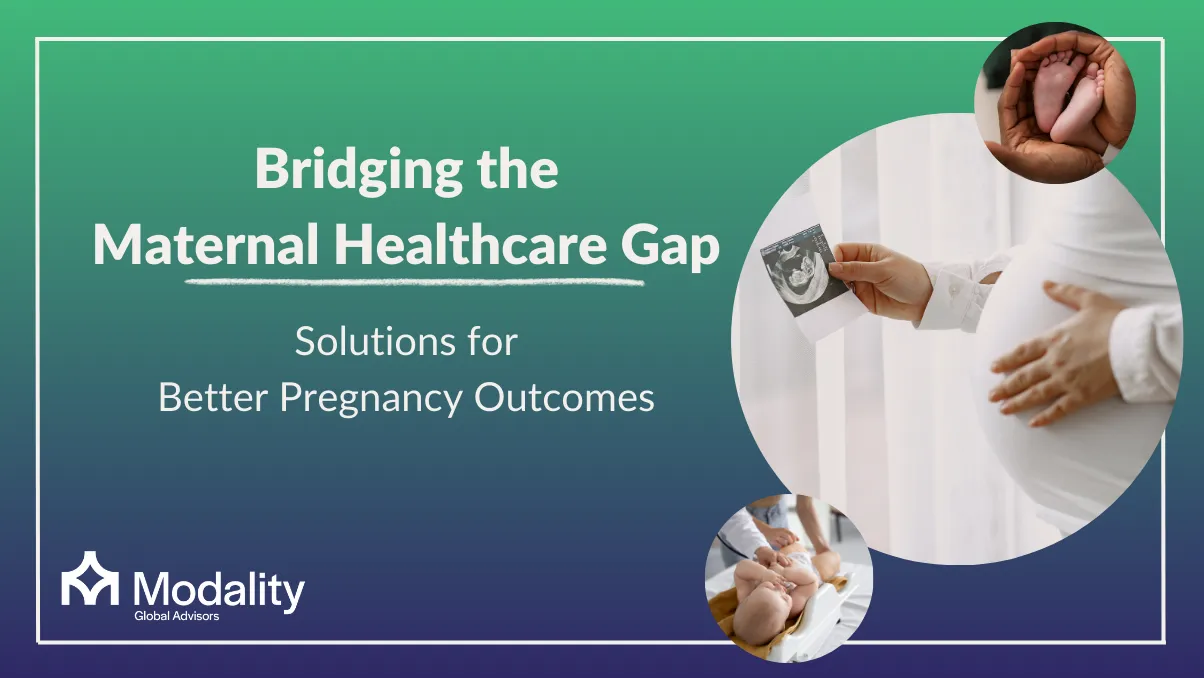In the recent time and age no mother should have to face the fear of inadequate care during pregnancy or childbirth. Yet, the reality is stark—maternal health disparities continue to plague healthcare systems worldwide, particularly in underserved and marginalized communities.
The fact that almost 800 women perish every day from avoidable pregnancy and delivery-related causes serves as a sobering reminder of the global maternal healthcare crisis. Although many people's maternal care has changed as a result of medical improvements, institutional gaps still exist and disproportionately impact marginalised communities. It is not only morally required, but also a social requirement, to close this gap.
An Overview on the Global Maternal Healthcare Gap
The following statistics highlight a harsh reality: geography, income, and race often dictate survival.
- Maternal mortality in low-resource situations is still frighteningly high despite advancements. (WHO 2023)
- 94% of maternal fatalities take place in nations with low and moderate incomes.
- Sub-Saharan Africa has a maternal mortality ratio (MMR) of 542 deaths for every 100,000 live births, which is roughly 130 times worse than that of high-income countries.
- Racial disparities still exist in the United States: Black women are three times more likely than white women to die from pregnancy-related problems (CDC, 2022).
Key Challenges Contributing to Poor Pregnancy Outcomes
- Access to Care: Over 50% of rural women in developing nations lack access to prenatal services. Distance, cost, and infrastructure barriers limit timely interventions.
- Socioeconomic Factors: Poverty, malnutrition, and lack of education exacerbate risks.
- Quality of Care: Shortages of skilled providers and inadequate facilities compromise outcomes.
- Cultural Stigmas: In some regions, cultural norms discourage women from seeking care.
Innovative Solutions to Bridge the Gap
Community-Based Care Models
Bringing healthcare to the community, through mobile clinics, telehealth, and local health workers has proven effective.
Expanding the Role of Midwives and Doulas
Studies have shown that the presence of doulas can reduce cesarean rates by 39% and shorten labor by 41 minutes on average.
Leveraging Data for Equity
Advanced data analytics can help identify at-risk populations, monitor outcomes in real time, and implement targeted interventions.
Strengthening Policy and Advocacy
Legislations in the U.S are pushing for critical investments in social determinants of health, funding for community-based organizations, and research.
The Role of Modality Global Advisors
Modality Global Advisors (MGA) is a strategic consulting firm driving innovation in maternal and child health by addressing systemic gaps in policy, technology, and care delivery. Working with healthcare systems, nonprofits, and governments, MGA combines public health expertise with tech-driven solutions to improve outcomes for mothers and newborns.
Key Initiatives:
- Inclusive Care Models: Designing culturally sensitive protocols and training healthcare staff to reduce implicit bias, ensuring dignified, empathetic care.
- Strategic Partnerships: Expanding access through telemedicine and mobile clinics in underserved regions like rural India.
- Workforce Development: Upskilling community health workers (CHWs) and midwives in Sub-Saharan Africa with evidence-based training.
- Data-Driven Solutions: Leveraging analytics to pinpoint high-risk areas and optimize resource allocation.
- Policy Advocacy: Influencing maternal health policies, including U.S. postpartum Medicaid extensions.
MGA’s multidisciplinary approach is transforming maternal healthcare, ensuring equitable, high-quality care for all women, everywhere.
The Way Ahead
Innovation, teamwork, and steadfast dedication are necessary to close the maternal healthcare gap. By utilising technology, strengthening communities, and elevating voices like MGA's, we can guarantee that every woman, irrespective of her income or zip code, gets the care she needs.
Sources: WHO (2023), CDC (2022)

